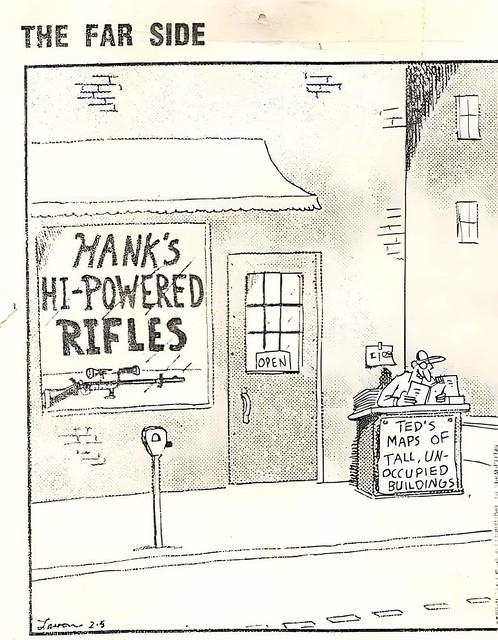
My title is taken from
La Curry (
arch); but apart from that I can't recommend her post; and sadly but predictably the comments are worthless
1 and make no attempt to address the interesting issue; whether such a right does or should exist.
First some reference material:
the judgement itself;
press release.
As regular readers know,
I dislike rights-based language. This case rather illustrates that: having found that those dastardly Swiss have failed to do <something or other>, there's no effective remedy. The Swiss are now obliged to do <something>, and perhaps in five years time we can look forward to another case complaining that <something> wasn't enough; and so on around, to solve what we're pretending is an urgent problem. By contrast, a proper "right" - something that forbids the state from interferring with you - does have an effective remedy. See e.g.
Gay Cakes.
This problem was covered extensively by
Alsup in what was once upon a time everyone's favourite climate case, before it got decided in a way that people didn't like. Doing something about GW is for the executive, not the courts. Interestingly, in all the reactions to the judgement I've seen, not one of these memory-of-a-goldfish people reffed Alsup.
Nominally, the evil Swiss have violated
article 8:
Everyone has the right to respect for his private and family life, his home and his correspondence. At a stretch, you could possibly consider that <not doing enough about GW> fails that, but you could just as easily if not more so argue not; and there's no real way to make any definitive judgement, so it is all rather meaningless. Clearly, GW was not in anyone's mind when the Convention was written so it was not anyone's original intent to provide a right to not-GW.
The dissent says all this and more, but in nice legal words, as well as politely chiding the court for going off the rails.
A minor snark: the case was brought by "KlimaSeniorinnen" i.e. wrinkly folk who effectively argues that because they were frail, they were more affected. Which is an interesting inversion of the
Photogenic Teens, who argued that they were more affected because they were young, and would be hit by future change. I think the the PT have a better case; the wrinklies will die off before they're too badly affected.
Another: the court rejected standing by individuals, but granted it to organisations. Despite this being against their usual policy. I can't work out why they did this; it makes no sense to me.
Notes
1. Sorry DA and RS. You can try again here if you'd like more intelligent conversation.
Refs
* 2021/11: Lust for suing.
* 2021/04: Yet moaah climate suing; and City of New York v Chevron Corp, again.
* 2020/06: Yet moah climate suing.
* 2019/12: Exxon Found Not Guilty of Deceiving Investors Over Climate Risks; and Historic Urgenda Climate Ruling Upheld by Dutch Supreme Court.
* 2019/02: Moah suing news.
* 2018/08: Yet more climate suing.
* 2018/06: Holy Alsup, Batman!
* 2018/03: A little bit more climate suing stuff.
* Richard Ekins: Strasbourg’s absurd climate ruling will see environmental policy annexed by the courts.
* The People Will Save the Planet, Not the Courts (arch).
* We Don’t Need a ‘War’ on Climate Change, We Need a Revolution? and Words for the word god.
* Bruce Schneier points us to Dan Solove on Privacy Regulation: Murky Consent: An Approach to the Fictions of Consent in Privacy Law. This gets one thing right: both the US version (by using this service you consent to our terms) and the EU version (a zillion cookie popups that everyone clicks through) are not "real consent". His answer is, astonishingly, more regulation, how could we possibly have guessed (Murky consent should be subject to extensive regulatory oversight with an ever-present risk that it could be deemed invalid: in other words, yet again, overturning contracts (see-also Sandel: Liberalism and the Limits of Justice) and thus providing more work for lawyers). A better answer is: yes, this is not real consent, but no-one gives a toss so just move on. There is general public apathy in this area, which is good grounds for believing that no new law is needed.
* Sabine has a video on the general subject but it is shallow; and she has forgotten - or never heard of - Alsup or the ex-photogenic ex-teens.
 My title is taken from La Curry (arch); but apart from that I can't recommend her post; and sadly but predictably the comments are worthless1 and make no attempt to address the interesting issue; whether such a right does or should exist.
My title is taken from La Curry (arch); but apart from that I can't recommend her post; and sadly but predictably the comments are worthless1 and make no attempt to address the interesting issue; whether such a right does or should exist.
No comments:
Post a Comment